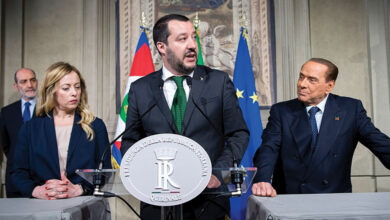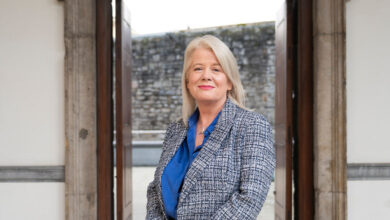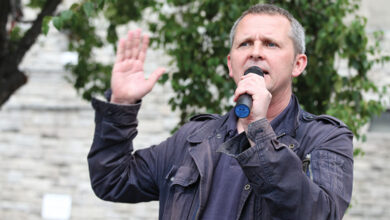The two worlds of tech
 ICTU’s Macdara Doyle contrasts the positive image of the technology sector at the Dublin Web Summit and the harsh working conditions elsewhere in the sector.
ICTU’s Macdara Doyle contrasts the positive image of the technology sector at the Dublin Web Summit and the harsh working conditions elsewhere in the sector.
It’s like a tale of two worlds. In the first instance, we have the glitz and shimmer of events like the recent Web Summit in Dublin, which promote all that is best and most alluring in the global tech sector. And given the enormous positive media coverage that attends these events, it is no surprise that government ministers in search of a good story and some reflected glory are to be found in close proximity.
Equally, large tech conglomerates – no slouches when it comes to PR – are adept at using the platform to keep the good news flowing and burnish their own image in the process. Thus the Dublin Web Summit saw an announcement from Amazon of the creation of some 300 extra positions in Ireland, in addition to the 1,400 they already employ here.
That is good news for the 300 people who will take up those positions. Hopefully a significant portion will be comprised of people who are out of work and trying to get back into employment, along with others who might well have left these shores because of a lack of opportunity.
But the tech world is not all glitz and shimmer and not every tech sector worker will become a ‘start-up billionaire’. Nor even is it a guarantee that all employment in the tech sector is necessarily high-end and well-paid.
Peel away the gloss and upbeat news and you uncover stories like FoxConn in China, where Dickensian conditions threatened for a while to seriously tarnish the Apple brand. But you don’t have to travel to Asia to find examples of the tech sector’s ‘other world’, which rarely appears on camera or in print.
Last May, delegates at the International Trade Union Confederation (ITUC) conference in Berlin voted Amazon chief Jeff Bezos ‘the World’s Worst Boss’. The 19th richest man on earth was up against stiff competition but emerged as a convincing winner.
Amazon employs some 100,000 people in its 89 warehouses worldwide. The company enjoyed a turnover of $62 billion in 2012. Like many a tycoon past and present, Bezos has used his wealth to purchase high-profile media outlets, securing the once-mighty Washington Post for just $250 million in 2013.
Yet there never seems to be enough money to ensure dignity, respect and decent conditions for the entire Amazon workforce. In announcing his ‘award’, ITUC General Secretary Sharan Burrow cited appalling employment practices uncovered at Amazon’s distribution centres, in the US and Europe.
“Workers … are required to wear digital arm-mounted terminals that monitor their every move. There are no agreed protocols about breaks and speed, and a culture of bullying and harassment is rife. Staff are reprimanded just for speaking to one another or even pausing to catch their breath.”
The ITUC leader’s assertions are based on solid evidence accumulated by first-class investigative reporting over the years.
In 2011, the Allentown, Pennsylvania, daily The Morning Call published a series of testimonies from Amazon workers employed in a nearby distribution centre: “Workers said they were forced to endure brutal heat inside the sprawling warehouse and were pushed to work at a pace many could not sustain.
“During summer heat waves, Amazon arranged to have paramedics parked in ambulances outside, ready to treat any workers who dehydrated or suffered other forms of heat stress. Those who couldn’t quickly cool off and return to work were sent home or taken out in stretchers and wheelchairs and transported to area hospitals. And new applicants were ready to begin work at any time.” To date, there has been no public response from Bezos on his World’s Worst Boss Award.
The Morning Call’s investigation is published online at www.mcall.com/news/local/amazon





